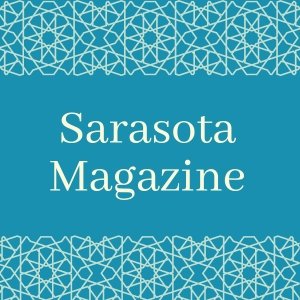
Published Pieces and Personal Essays
The issue of who shows up in the curriculum is a very live debate in Florida today, where there is legislation that limits history and civics curricula in public schools. I went to elementary and high school in overwhelmingly white suburbs and anticipated college as an opportunity to figure out what was missing from my educational experience.
When President Joe Biden called Pakistan “one of the most dangerous nations in the world,” the irony felt painful. For so many Muslims in America and around the globe, the United States has spent the last two decades proving itself to us to be the most dangerous nation in the world.
Muslim theology contains the unassailable principle that judgement is for God alone. There is no parallel unassailable principle against queer sexuality or against queer gender identities. In other words, the hate is the problem here.
The kites are seductively easy to fly in the breeze that comes so persistently off the Niagara escarpment, its distant tree line broken by towering limestone. They get the kites up within minutes, then lie back into the grass to wonder at them for another hour longer.
To escape our horrific history, America must acknowledge and remake its design as an embattled settler colonial state, for which the primary goal is to maintain power at the expense of its colonized peoples, as well as Black and immigrant workforce populations.
The last time my family watched July 4 fireworks, we spread a blanket out in Washington Crossing Park, the site of George Washington’s crossing of the Delaware River during the Revolutionary War. Our little ones, then 4 and 6, stayed up far past bedtime. That was when Donald Trump was campaigning on the promise of banning people trying to enter the U.S. from Muslim-majority countries.
The irony is that I am, ethnically, the kind of Indian early European settlers in the Americas thought they were encountering—the kind from what they called India, before it also became Pakistan and Bangladesh.
We hadn’t understood that all of DuPage County is believed to have been a sundown county—a place where a Black person ought not be caught when the sun set, or they could expect to be violently run out, or even killed. It’s unsettling to find that so many of the places made all-White through violence remain overwhelmingly White today, as if the threat still hangs in the air and in the culture.
Recent studies and surveys by the Institute for Social Policy and Understanding (ISPU) tell us our concerns were justified. ISPU has been a boon to American Muslims, who had previously lacked good data about themselves, helping us see more clearly how we’re faring.
What I couldn’t have known then, in the absence of a curriculum that teaches history in chronological order, with competing narratives of both victors and victims, is that my tiny slice of America was constructed atop the worst excesses of a more than 400-year legacy of European colonization. Because American schoolchildren are, as I was, so often encouraged to substitute slogans like “manifest destiny” and “nation of immigrants” for actual history, I could not yet make sense of the troublesome gaps between these slogans and the world around me.
There's a common story that Muslims are told about Hagar in the context of the hajj (pilgrimage to Mecca) ritual. It has some variations because there's almost nothing about it in the Qur'an, and it's instead rooted in oral traditions recorded after the life of the Prophet Muhammad. Remarkably, our version of Hagar is quite different in tone and in detail than the Jewish or Christian versions.
One great irony of the Muslim Ban* was that Muslims have been in America for four hundred years. They were stolen and held captive, enslaved for generations. Perhaps the clearest record we have of those early Muslims is in the culture of the Gullah Geechee, who were descended from those captured in West Africa and enslaved in the Sea Islands of South Carolina and Georgia.
I had an ectopic pregnancy in 2009. It was a pregnancy I wanted desperately. When the pain started, I tried to tough it out, thinking I could manage a miscarriage at home.
It's hard to explain faith. Someone--an acquaintance from college--recently wrote that they were doing me a kindness by not considering me evangelical and writing me off. The truth is, I don't mind being written off. But I am concerned about being considered evangelical.
One summer, when I was 19 or so, I drove out to the Gateway Ranch, which sits on the edge of the Navajo reservation, near Flagstaff. Intended to be a place of environmental sustainability and responsible, respectful cultural exchange, it is the home of a former AIM activist, who had been invited to be principal of the reservation's first native-run school.













